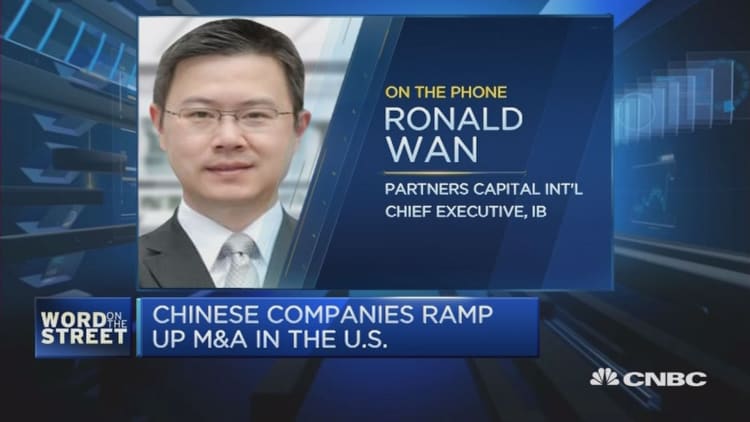Chinese Premier Li Keqiang expressed confidence in the outlook for the world's second-largest economy on Wednesday, assuring there would be no hard landing as long as reforms continue.
Speaking at a lengthy news conference at the end of an annual meeting of parliament, Li said supply-side reforms would unleash fresh growth drivers.
China has identified supply-side policies as a key pillar of its strategy to revive growth, which fell to a 25-year low in 2015, and arrest excess capacity in sectors including steel. The actions, aimed at improving productivity, include the long-awaited restructuring of state-owned enterprises (SOEs), cutting red tape and strengthening financial regulation.
Beijing is targeting 6.5 to 7 percent growth this year, and economists widely expect an array of fiscal and monetary stimulus, alongside these key reforms, to meet that target.
On Wednesday, Li said it was "impossible" for China to miss that goal despite doubts about Beijing's lofty ambitions. Strategists frequently attribute China's problems to 'the impossible trinity,' i.e. the notion that countries cannot simultaneously have a stable currency, free movement of capital and independent monetary policy.
Li did not address recent moves in the renminbi, which on Wednesday was guided lower against the dollar for the third straight session.
Economics aside, Li touched on a broad number of topics in conference, including foreign relations. Li said that disagreements among countries needed to be resolved through peaceful, diplomatic means, adding that China needed a peaceful external environment to support its economic development.
'It doesn't matter who's president'
Li said that Chinese-U.S. relations would continue to develop, regardless of who won this year's presidential election.
This is despite fierce criticism in Chinese state-controlled media over the American-style democracy that has resulted in an unusually vicious U.S. campaign trail, with particular criticism reserved for property mogul and GOP hopeful Donald Trump.
Trump has frequently accused China of stealing jobs and portrayed himself as a tough negotiator who would beat Beijing at its own game.
U.S. Democratic presidential hopeful Hillary Clinton has also weighed in with criticisms, saying earlier this month that as the Chinese economy slows, Beijing will engage in more damaging trade practices.
Li said on Wednesday that the U.S. election "has been lively and caught the eye of many," but added, "I believe that no matter in the end who wins the laurel and serves as president, the underlying trend of China-U.S. relations will not change," Li said.
That trend over the past several decades has been "forward development", he said.
While the world's two largest economies are frequently at odds over everything from human rights and currency policy to the South China Sea, they have deep business ties and are in talks on a bilateral investment treaty (BIT). But slow progress on the treaty and tensions over cyber hacking and new laws that could hamper foreign tech firms in China, have soured commercial relations.
China has more restrictions on foreign investment than the U.S., and American investors are hoping the treaty will give them increased access to Chinese SOEs, from financial services to telecommunications.
Li said he hoped the two countries could conduct treaty talks on the basis of equality and mutual benefit.
"China will give U.S. investors wider market access in a gradual way, but this should be mutual. Bilateral opening should be reciprocal."

Japan: 'A fragile relationship'
The premier said that China's relationship with Japan had shown improvement but remained fragile.
The two Asian heavyweights have historically been at odds with each other but tensions have mounted in recent years due to a territorial dispute in the East China Sea and Chinese assertions that Tokyo has yet to make amends for its World War II crimes.
'We'll keep pushing trade with Taiwan'
China will continue to help push trade with Taiwan as long there was continued peaceful development of ties, Li said.
This year's landslide presidential victory by Taiwan's pro-independence party, the Democratic Progressive Party (DPP), has Beijing wary about political stability.
China views the island-nation as a rebel region that must be unified with the mainland, and incoming Taiwanese President Tsai Ing-wen has pledged to maintain peace with Beijing.
'I'm confident on Hong Kong'
Li said he was confident that the government and people of Hong Kong can deal with their "complex issues."
The special administrative region has experienced growing protests against rising influence from Beijing and citizens have long been protesting for independent elections. Relations recently took a turn for the worse following the disappearance of five Hong Kong booksellers.
While Li directly failed to mention the recent political clashes, he said Beijing would support policies that maintain Hong Kong's long-term prosperity as well as economic growth.
—Reuters contributed to this report.


